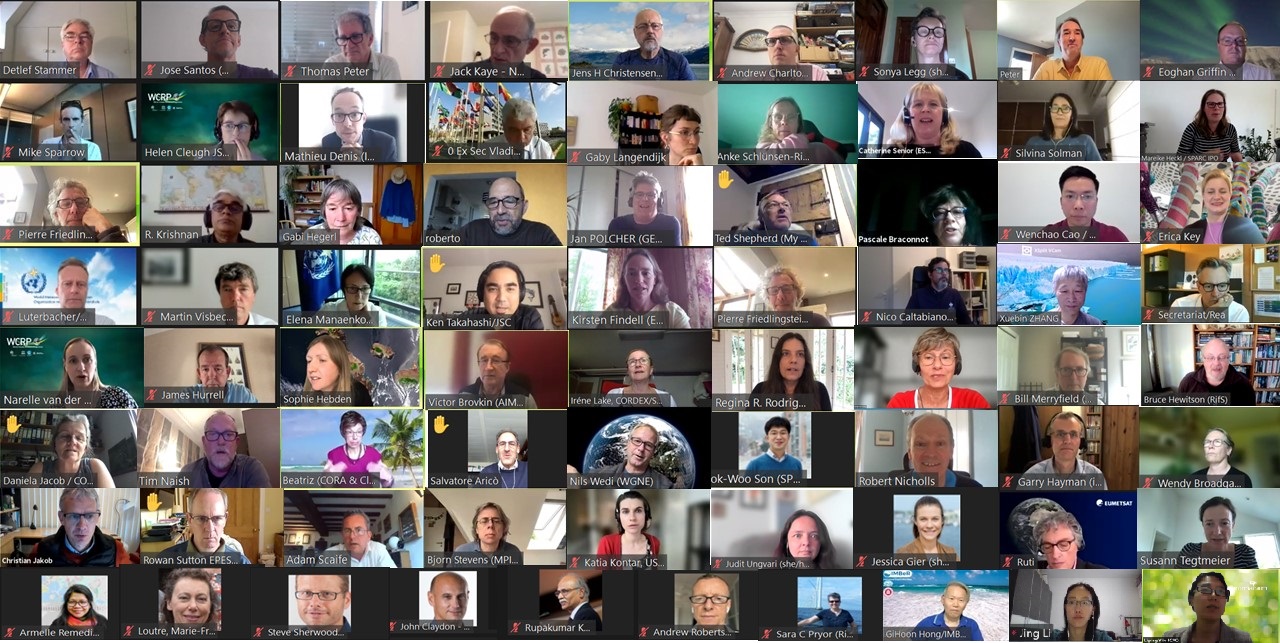CLIVAR at WCRP JSC-42

The 42nd Session of the WCRP Joint Scientific Committee meeting (JSC-42) is in progress. During the meeting, a number of important issues, including the approval of plans for the new WCRP Lighthouse Activities, and the new “Core Projects” on “Earth System Modelling and Observations” and “Regional Climate Information for Society” were considered. In addition, the Core Projects, Grand Challenges and other major activities reported on their progress towards their science objectives and on how they are strengthening their work in response to WCRP's Strategic Plan 2019-2028. Discussions in breakout sessions about coordination and communication, science gaps, engagement and need of inclusion and diversity, science partnerships, the impact of WCRP science, and resources were very interesting and will enrich our future plans.
In the first three days of the JSC-42, we heard remarks and anticipation from the three co-sponsors of WCRP (WMO, IOC-UNESCO and ISC) in the opening session; the progress of the new WCRP implementation and lessons learned for WCRP climate research forum in session 2; the updates of science plan development for WCRP lighthouse activities and two new core projects – ESMO and RifS in sessions 3, and the updates from current Core Projects and Grand Challenges in Session 4.
Dr Sonya Legg, co-chair of CLIVAR Scientific Steering Group (SSG) made the CLIVAR presentation on behalf the CLIVAR community, by highlighting the scientific priorities and major achievements of CLIVAR in the past year, the upcoming events, and most importantly, how to better connect to other core projects and lighthouse activities within WCRP and cooperate with our partners. CLVIAR is trying hard to break the silos of its groups by encouraging more cross-cutting activities and discussions among different groups, and in particular for GSOP and OMDP to talk with other panels. The JSC was impressed by and highly valued the tremendous activities and achievements by CLIVAR even during the pandemics, and appreciated the support from ICPO staff and its hosting agency, FIO-MNR in China. Meanwhile, suggestions received from the audience on potential areas to cooperate with other WCRP activities, including the enhanced cooperation with IOC-UNESCO through participating the Integrated Ocean Carbon Research (IOC-R) and Open Science Conference on Eastern Boundary Upwelling System in Lima, Peru in 2022; the potential cooperation among CLIVAR and CliC on Sea Level; GSOP’s contribution to Digital Earth LHA in ocean data assimilation for climate; potential cooperation with Fresh Water GC on assessing the impact of water usage by continent to the coastal processes, etc. Please check the CLIVAR report and presentation at JSC-42 for more details.
During day 4 and 5 of JSC-42, there were more interactive discussions focusing on the Implementing the Strategy: Science gaps, Governance, Communications, Engagement and Budgetary Support (session 5), and Science Partnerships, WCRP impact, and Resources (session 6), and Way Forward and Next Steps (session 7).
The reports and presentations are available at https://www.wcrp-climate.org/jsc42-documents
For more information on JSC-42, please visit https://www.wcrp-climate.org/jsc42-about.











Add new comment